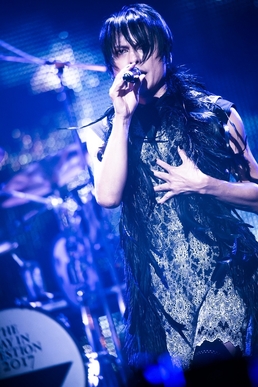
Atsushi Sakurai was a Japanese musician and singer-songwriter. He was the lead vocalist and primary lyricist of the rock band Buck-Tick from 1985 until his death in 2023. Initially joining as their drummer in 1983, Sakurai fronted the band for 38 years and 23 studio albums, nearly all of which reached the top ten on Japan's Oricon chart. They are commonly credited as one of the founders of the visual kei movement.
Buck-Tick is a Japanese rock band formed in Fujioka, Gunma in 1983. The group consisted of lead vocalist Atsushi Sakurai, lead guitarist Hisashi Imai, rhythm guitarist Hidehiko Hoshino, bassist Yutaka Higuchi and drummer Toll Yagami from 1985 until Sakurai's death in 2023. The band has experimented with many different genres of music throughout their four decade career, including punk rock, gothic rock and industrial rock. Buck-Tick are commonly credited as one of the main founders of the visual kei movement.

Aku no Hana is the fifth studio album by the Japanese rock band Buck-Tick. It was released on cassette and CD on February 1, 1990, through Victor Entertainment. It peaked at number one on the Oricon charts and is the group's best-selling album to date. It was certified gold in the month of its release, and sold 435,080 copies in the first year of its release. The title comes from Charles Baudelaire's volume of poetry, Les Fleurs du mal.

Six/Nine is the eighth studio album by the Japanese rock band Buck-Tick. It was released in a clear purple case on May 15, 1995, through Victor Entertainment.

Sexual XXXXX! is the second studio album by the Japanese rock band Buck-Tick. It was the group's major label debut and was released on vinyl, cassette and CD on November 21, 1987 through on Victor Entertainment. The album was digitally remastered and re-released on September 19, 2002, with a different cover. Sexual XXXXX! was remastered and re-released again on September 5, 2007. The songs "Do the I Love You" and "Hyper Love" were later re-recorded for the band's compilation album Koroshi no Shirabe: This Is Not Greatest Hits (1992). "My Eyes & Your Eyes" was also re-recorded for the b-side to their "Rendezvous" single in 2007. At the time of its release, the album peaked at number 33 on the Oricon charts and as of 2011, has sold 40,000 copies.

Seventh Heaven is the third studio album by the Japanese rock band Buck-Tick. It was released on vinyl, cassette and CD on June 21, 1988, through Victor Entertainment, and has been certified gold by the RIAJ for sales over 100,000 copies. The album was digitally remastered and re-released on September 19, 2002, with two bonus tracks. It was remastered and re-released again on September 5, 2007. The lyrics for "Physical Neurose" mention Gregor Samsa, the main character of Franz Kafka's The Metamorphosis. "...In Heaven...", "Oriental Love Story" and "Victims of Love" were later re-recorded for the group's compilation album Koroshi no Shirabe: This Is Not Greatest Hits (1992). Seventh Heaven peaked at number three on the Oricon charts, and 1st on the LP chart; it has sold 110,000 copies.
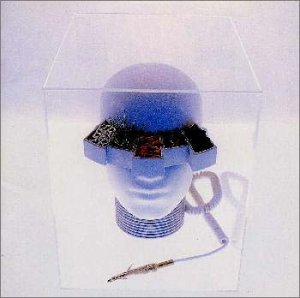
Sexy Stream Liner is the tenth album by Buck-Tick, their first on Mercury Music Entertainment, released on December 10, 1997. It reached number four on the Oricon chart with 78,820 copies sold. Starting with this album, Hisashi Imai started using the theremin in their sound. Like their previous album, Sexy Stream Liner is very influenced by the cyberpunk subculture.
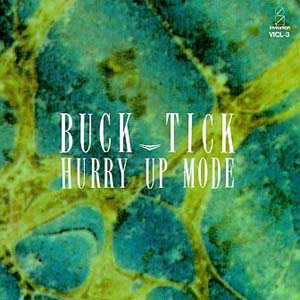
Hurry Up Mode is a remix album by Buck-Tick, released on February 8, 1990. It is composed of different versions of every song on their 1987 debut album Hurry Up Mode, except the two CD-exclusive bonus tracks. It reached number one on the Oricon chart, selling 212,430 copies. The album was digitally remastered and re-released on February 19, 2002, with two different bonus tracks. It was remastered and re-released again on September 5, 2007. "Moon Light" was later re-recorded once again for their 1992 compilation album Koroshi no Shirabe This Is Not Greatest Hits.

Darker Than Darkness -Style 93- is the seventh studio album by the Japanese rock band Buck-Tick. It was released on June 23, 1993, through Victor Entertainment. The album peaked at number two on the Oricon chart, became a certified gold seller by July 1993, and subsequently sold 213,260 copies. Darker Than Darkness -Style 93- was digitally remastered and re-released on September 19, 2002, with two bonus tracks. It was remastered and re-released again on September 5, 2007. "Dress" was remixed and used as the opening theme for the anime Trinity Blood (2005), this version was also released as a single. The album was named one of the top albums from 1989 to 1998 in a 2004 issue of the music magazine Band Yarouze.
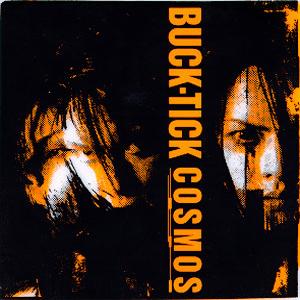
Cosmos is the ninth studio album by the Japanese rock band Buck-Tick. The album was released on June 21, 1996, through Victor Entertainment. It was the group's last album released through Victor and peaked at number six on the Oricon charts. Cosmos has sold 130,000 copies within two weeks. The album was digitally remastered and re-released on September 19, 2002, with two bonus tracks. It was remastered and re-released again on September 5, 2007. The song "Tight Rope" was later re-recorded as the b-side to the group's "Alice in Wonder Underground" single in 2007, and "Sane" was re-recorded in 2012 for their "Elise no Tame ni" single. The album was heavily influenced by electronic music, as the band started gravitating towards cyberpunk music.

Tenshi no Revolver is the fifteenth studio album by Japanese rock band Buck-Tick, released by BMG Japan on September 19, 2007. The group deliberately focused on melody and adopted a straight rock "band sound" for the album. Preceded by the singles "Rendezvous" and "Alice in Wonder Underground", Tenshi no Revolver reached number five on the Oricon Albums Chart. Buck-Tick continued the musical approach they adopted on this album for their next two as well, Memento Mori (2009) and Razzle Dazzle (2010).

Kurutta Taiyou is the sixth studio album by the Japanese rock band Buck-Tick. It was released on cassette and CD on February 21, 1991, through Victor Entertainment. The album was digitally remastered and re-released on September 19, 2002, with two bonus tracks. It was remastered and re-released again on September 5, 2007. "Speed", "M・A・D" and "Jupiter" were later re-recorded for the group's compilation album Koroshi no Shirabe: This Is Not Greatest Hits (1992).

Koroshi no Shirabe: This Is Not Greatest Hits is the first compilation album released by the Japanese rock band Buck-Tick. It was released on cassette and CD on March 21, 1992, through Victor Entertainment. All of the tracks on the compilation were re-recorded and contain different musical arrangements, because of this some argue that it is a studio or remix album. The album was digitally remastered and re-released on September 19, 2002, with a bonus track. It was remastered and re-released again on September 5, 2007. Koroshi no Shirabe: This Is Not Greatest Hits peaked at number one on the Oricon charts. It was certified gold in April 1992, and has sold 338,000 copies.
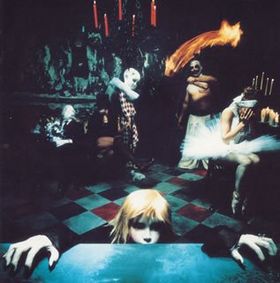
Juusankai wa Gekkou is the fourteenth album by Japanese rock band Buck-Tick, released on April 5, 2005.
The discography of Buck-Tick includes 23 studio albums, 4 live albums, 2 extended plays, 43 singles, and 42 video albums. Formed in 1983 in Fujioka, Gunma, the group consisted of lead vocalist Atsushi Sakurai, lead guitarist Hisashi Imai, rhythm guitarist Hidehiko Hoshino, bassist Yutaka Higuchi and drummer Toll Yagami from 1985 until Sakurai's death in 2023. In their four decade career, nearly all of their albums have reached the top ten on the charts and they have experimented with many different genres of music, including punk, dark wave, electronic, industrial, gothic and straight rock. Buck-Tick are commonly credited as one of the founders of the visual kei movement.
Hisashi Imai is a Japanese musician and songwriter. He is best known as the lead guitarist of the rock band Buck-Tick since 1983. He has also performed in side-projects such as the duo Schaft with Soft Ballet member Maki Fujii, the supergroup Schwein, and the rock trio Lucy. Imai is known for his visual aesthetics, and Buck-Tick are commonly credited as one of the founders of the visual kei movement.
"Just One More Kiss" is the second single by the Japanese rock band Buck-Tick. It was released on October 26, 1988 by Victor Entertainment as the band's major label debut.
Aku no Hana (悪の華) is the third single released by the Japanese rock band Buck-Tick, released on January 24, 1990, and labeled with Victor Entertainment.
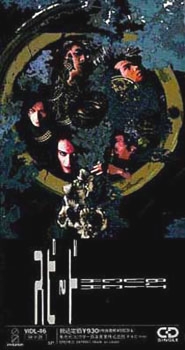
"Speed" (スピード) is the fourth single released by the Japanese rock band Buck-Tick. It was released as the first single from the group's sixth studio album, Kurutta Taiyou, on January 21, 1991, through Victor Entertainment. The single was released as an 8 cm CD in a cassette-like sleeve case that featured a re-worked version of the cover to Kurutta Taiyou. "Speed" peaked at number 3 on the Oricon music chart during the third week of 1991. It is band's 3rd best-selling single, with over 180,000 copies sold.
"Dress" is the seventh single by Japanese rock band Buck-Tick, released on May 21, 1993. The song was written by vocalist Atsushi Sakurai, composed by guitarist Hidehiko Hoshino, and produced by the band themselves. It was the first single released off of their seventh studio album Darker Than Darkness -Style 93-, which was released a month later. It reached number 5 on the Oricon Singles Chart. It is band's fourth best-selling single, with over 171,000 copies sold.














